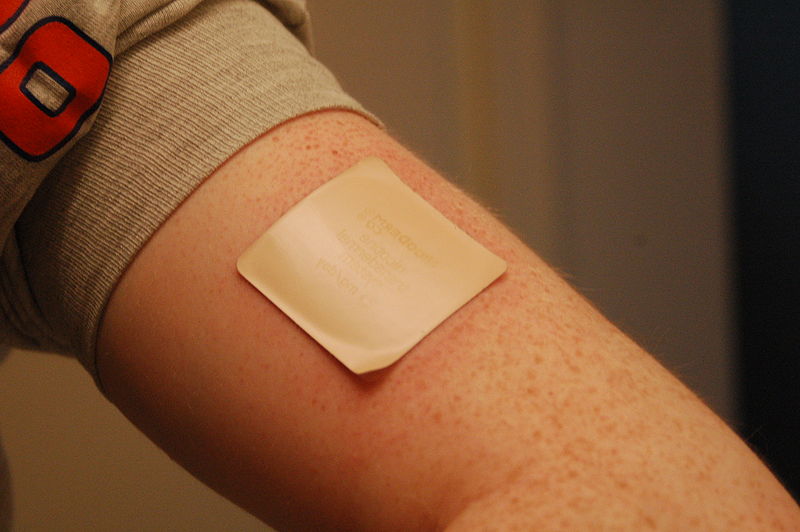WHAT IF SCREENING IS POSITIVE?
All patients identified as smokers should be given resources to assist with quitting, e.g. 1-800-QUIT-NOW.1
Pharmacotherapy
-
Besides counseling, all patients attempting smoking cessation should be offered medications to better quit success and decrease withdrawal symptoms.1
-
Pregnant women should not routinely use smoking cessation medications.1 More Information
-
The combination of counseling and medications is more effective than either factor alone at increasing smoking cessation rates.1
Nicotine Replacement Therapy
-
Nicotine replacement therapy contains small amounts of nicotine, which helps relieve cravings  and reduce symptoms of withdrawal.1
and reduce symptoms of withdrawal.1
-
Nicotine gum, patch, or lozenge
-
Nicotine inhaler or nasal spray
Prescription Non-Nicotine Medications
- Bupropion (Zyban®)
- An anti-depressant that works on chemicals in the brain to reduce symptoms of nicotine withdrawal.1,2
- Contraindications: seizures, heavy alcohol use, cirrhosis, serious head injury, bipolar disorder, anorexia or bulimia, use of sedatives, or recent use of monoamine oxidase inhibitor (MAOI)2
- Side effects: dry mouth, trouble sleeping, tiredness, agitation, irritability, indigestion, and headaches2
- Black box warning: may worsen depression and suicide ideation1,2
- 6-month abstinence rate: 24%1
- Varenicline (Chantix®)
- Blocks the pleasant effects of smoking in the brain and lessens symptoms of nicotine withdrawal.2
- May increase the risk of cardiovascular events in patients with a history of cardiovascular disease.1,2
- Side effects: headaches, nausea, vomiting, trouble sleeping, unusual dreams, gas, and changes in taste.2
- Black box warning: may worsen depression and suicide ideation1,2
- 6-month abstinence rate: 33%1
Off-Label Smoking Cessation Aids
- Nortriptyline
- FDA approved for the treatment of depression.2
- Side effects: tachycardia, blurry vision, trouble urinating, dry mouth, constipation, weight gain or loss, and orthostasis.2
- 6-month abstinence rate: 22.5%1
- Clonidine
- FDA approved for the treatment of hypertension.2
- Side effects: constipation, dizziness, drowsiness, dry mouth, and unusual tiredness/weakness. Rarely, allergic reaction, bradycardia, and very high or very low blood pressure.2
- 6-month abstinence rate: 25%1
Resources
-
-
The image on this page is in the public domain and was obtained from Wikimedia Commons.
October 2014

